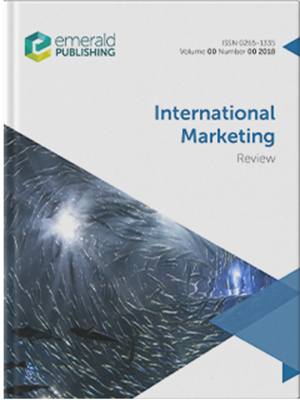How does cultural tightness-looseness affect attitudes toward a local vs foreign brand transgression?
IF 4.6
3区 管理学
Q1 BUSINESS
引用次数: 0
Abstract
Purpose This study aims to examine how cultural tightness at the national level and individual level influences consumer attitudes toward a brand's wrongdoing depending on the brand's country of origin and severity of the transgression. Design/methodology/approach Employing data from two tight-culture countries (China and South Korea) and a loose-culture country (the USA), two experiments were conducted to examine the proposed hypotheses. Findings The authors found that although consumers across cultures universally punish strong (vs weak) transgressions more severely, consumers in a tight-culture country, China, are more forgiving of a local (vs foreign) brand in both strong and weak transgression conditions, and forgiveness is higher for the strong transgression. Moreover, this buffering effect observed for Chinese consumers is stronger for those with high personal cultural tightness in the strong transgression condition. However, it emerges only in the weak transgression condition for South Korea, another tight-culture country. As hypothesized, no buffering effect for a local brand was found in a loose-culture country, the USA. Consumers from a loose culture assess transgression severity independently, and the punishment is harsher for strong transgressions than for weak transgressions. Originality/value This study fills a research gap by revealing that consumers from tight (vs loose) cultures would react differently to brands following a transgression depending on the brand's country of origin. It provides implications by examining how national-level and individual-level cultural tightness jointly affect post-transgression attitudes. It also presents a more nuanced perspective that the local brand's buffering effect is contingent on the degree of tightness and severity of transgression, even in similar culturally tight countries.文化的松紧度如何影响人们对本土品牌和外国品牌的态度?
本研究旨在考察国家层面和个人层面的文化紧密程度如何影响消费者对品牌不法行为的态度,这取决于品牌的原产国和违法行为的严重程度。设计/方法/方法采用来自两个文化紧密的国家(中国和韩国)和一个文化松散的国家(美国)的数据,进行了两个实验来检验提出的假设。作者发现,尽管不同文化背景的消费者普遍会更严厉地惩罚强势(与弱势)的违规行为,但在文化比较严格的中国,消费者在强势和弱势违规情况下都更能原谅本土(与外国)品牌,而且对强势违规的宽恕程度更高。此外,对于个人文化紧密度高的中国消费者来说,在强烈的越界条件下,这种缓冲效应更强。然而,对于同样是保守文化国家的韩国来说,它只出现在较弱的越界条件下。正如假设的那样,在美国这样一个文化宽松的国家,没有发现对当地品牌的缓冲作用。来自宽松文化的消费者独立评估违法行为的严重程度,对严重违法行为的惩罚比对轻微违法行为的惩罚更严厉。这项研究填补了一个研究空白,它揭示了来自严格(与宽松)文化的消费者在品牌的原产国不同的情况下,对违规品牌的反应会有所不同。它通过研究国家层面和个人层面的文化紧密程度如何共同影响后越界态度提供了启示。它还提出了一个更微妙的观点,即当地品牌的缓冲效果取决于违规的严格程度和严重程度,即使在类似的文化严格的国家也是如此。
本文章由计算机程序翻译,如有差异,请以英文原文为准。
求助全文
约1分钟内获得全文
求助全文
来源期刊

International Marketing Review
BUSINESS-
CiteScore
8.70
自引率
12.00%
发文量
55
期刊介绍:
International Marketing Review (IMR) is a journal that has, as its core remit, the goal of publishing research that pushes back the boundaries of international marketing knowledge. IMR does this by publishing novel research ideas, and by publishing papers that add substance to, question the basic assumptions of, reframe, or otherwise shape what we think we know within in the international marketing field. IMR is pluralistic, publishing papers that are conceptual, quantitative-empirical, or qualitative-empirical. At IMR, we aim to be a journal that recognizes great papers and great research ideas, and works hard with authors to nurture those ideas through to publication. We aim to be a journal that is proactive in developing the research agenda in international marketing, by identifying critical research issues, and promoting research within those areas. Finally, IMR is a journal that is comfortable exploring, and that fosters the exploration of, the interfaces and overlaps between international marketing and other business disciplines. Where no interfaces or overlaps exist, IMR will be a journal that is ready to create them. IMR’s definition of international marketing is purposefully broad and includes, although is not restricted to: -International market entry decisions and relationships; -Export marketing and supply chain issues; -International retailing; -International channel management; -Consumer ethnocentrism, country and product image and origin effects; -Cultural considerations in international marketing; -International marketing strategy; -Aspects of international marketing management such as international branding, advertising and new product development.
 求助内容:
求助内容: 应助结果提醒方式:
应助结果提醒方式:


